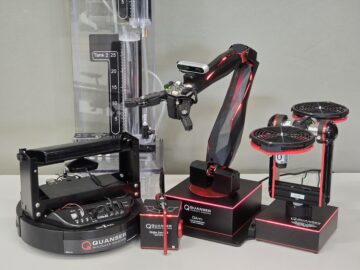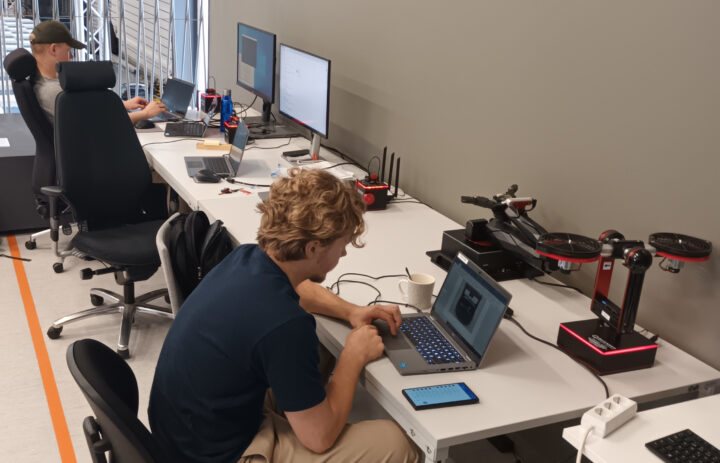Integrating robotic devices into Smart Systems education
In the rapidly evolving field of smart systems, practical hands-on experience is invaluable. Our summer initiative at the Smart Systems Lab has focused on integrating a range of robotics and mechatronics equipment into the curriculum of the Smart Systems track of the Master’s Degree Program in Mechanical Engineering at the University of Turku, specifically within courses like Intelligent Control and Machine Learning for Mechanical Engineers. These devices play a crucial role in bridging the gap between theoretical knowledge and real-world application.
 The devices used during this summer project were primarily based on Quanser equipment, which provides a versatile platform for exploring a wide range of fundamental and advanced concepts in smart systems. These devices enable students to engage with both Single Input Single Output (SISO) and Multiple Input Multiple Output (MIMO) systems, offering practical insights into the dynamics of complex systems. Through hands-on experimentation, students can explore important topics such as feedback control, stability, and advanced control strategies, which are integral to our curriculum, including machine learning and artificial intelligence, as well as adaptive and intelligent control approaches.
The devices used during this summer project were primarily based on Quanser equipment, which provides a versatile platform for exploring a wide range of fundamental and advanced concepts in smart systems. These devices enable students to engage with both Single Input Single Output (SISO) and Multiple Input Multiple Output (MIMO) systems, offering practical insights into the dynamics of complex systems. Through hands-on experimentation, students can explore important topics such as feedback control, stability, and advanced control strategies, which are integral to our curriculum, including machine learning and artificial intelligence, as well as adaptive and intelligent control approaches.
Exploring Python in advanced control systems
While Quanser provides extensive educational resources for Simulink, a mainstay in control systems education, we chose to explore the capabilities of Python. Python offers a more general and robust programming environment, making it ideal for implementing advanced control strategies. It’s increasingly used in modern automation solutions due to its versatility, ease of integration with other technologies, and strong support for machine learning and data analysis tasks.
Looking ahead
The robotics & mechatronics equipment is now fully operational and ready to support extensive research initiatives and thesis projects within the Smart Systems track of the Master’s Degree Program in Mechanical Engineering at the University of Turku. These tools offer unique opportunities for in-depth study and innovation, enabling researchers to explore advanced control strategies and develop cutting-edge solutions.
Stay tuned for future posts where we will showcase the available equipment and share insights on the implemented and researched control strategies. This ongoing work promises to contribute to the field of smart systems engineering and beyond.
Summer Project Team
This summer project was led by a dedicated team of four UTU mechanical engineering students: two Master’s students from the Smart Systems track, Otto Hättinen and Kimmo Paldanius, and two Bachelor’s students, Sakari Miettinen and Roope Tengström. Their combined skills and collaborative efforts were instrumental in integrating the equipment into the curriculum, ensuring that future students will benefit from a more hands-on, practical learning experience.
